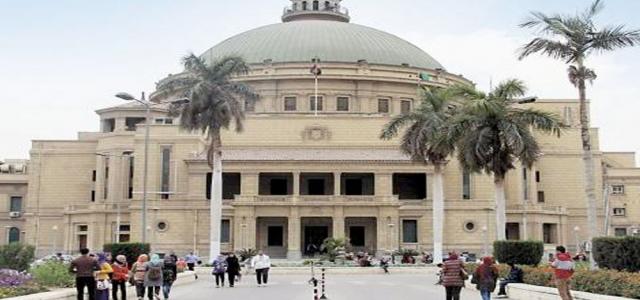Kareem Raafat
June 26, 2019
Since 2014 the Egyptian regime has imposed tight regulations over academic freedoms in order to maintain full control over universities. This was particularly evident when severe restrictions were enforced on university staff travelling abroad and on the visits of foreign professors to Egyptian universities.
The Association for Freedom of Thought and Expression, an NGO working in the field of academic freedom, recently published a research paper, “Waiting for Security Permission… Regarding Restrictions Over University Professors Travelling Abroad.” The paper discussed these restrictions and their impact on academic life, as well the fact that they contradict the Egyptian Constitution, international conventions regarding freedom of travel and movement, and academic freedoms. Here are the paper’s key points:
Security approvals first
These restrictions appeared to surface after a confidential letter from the Minister of Higher Education to the presidents of Egyptian universities was leaked. The letter included directives from the Prime Minister forbidding organising any international conference without the approval and coordination of the Ministry of Foreign Affairs regarding all administrative and organisational aspects.
In 2015, Hatem Salah Eldin, President of Damanhour University, stopped all protocols and programmes with foreign universities because “foreign delegations aim to penetrate Egypt, and their projects intend to harm the country.”
In the same year, the Vice President of Tanta University made it obligatory for all faculty members to attain approvals from the Ministry of Foreign Affairs before participating in any seminars, conferences, workshops, or submitting research papers abroad.
Cairo University also decided that any faculty member who wants to travel abroad has to pay EGP 10,000 as a donation to the university, which is illegal.
Meanwhile, administrations of different universities have asked staff members to obtain security permission before allowing them to travel abroad. Every professor has to fill five copies of the application, supply personal photos, and wait for security approval, according to Dr. Moustafa Kamel Elsayed, a professor of political science at Cairo University.
Security approval – an illegal procedure which monitors the activities of staff members – existed during Mubarak’s era and was cancelled in 2011. However, it was reenacted in 2014 and extended to include foreign professors and researchers who are visiting Egyptian universities. This forced many foreign professors to refrain from participating in Egyptian academic activities.
Restrictions against Egypt
These restrictions hinder the faculty members’ ability to communicate with universities and research centres abroad. This has a negative impact on the evolution of academia, scientific research and innovation in Egypt.
“We highly depend on international cooperation, since the Egyptian government does not fund scientific research. Without international cooperation, our efforts and all research work will cease to exist. Without exchange programmes between Egyptian universities and foreign ones everything will stop. We are not self-sufficient to work without them,” said Dr. Laila Soueif, activist and professor at Cairo University.
Dr. Moustafa Elsayed also warns that restrictions on international exchange and travelling abroad will lower the global ranking of Egyptian universities, as they consider international cooperation a key criterion.




Recent Comments